FOR IMMEDIATE RELEASE
MTQUA Medical Travel Quality Alliance inquiry leads Visa to correct its report and admit $439 billion is not value of medical tourism industry.
August 21, 2016 – Scottsdale, Ariz. and Bangkok – Visa has corrected an error it made in reporting earlier this year that the value of the global medical tourism industry was $439 billion.
“The valuation was clearly a mistake but it was already spreading across the internet like a weed,” said Julie Munro, president of Medical Travel Quality Alliance (MTQUA).
“We asked Visa to check this figure,” said Munro, who first noticed it was curiously identical to a value for the wellness tourism while reviewing content for the joint MTQUA – International Air Transport Association (IATA) Medical Travel Specialist Diploma program for travel agents.
She noted that online bloggers and news aggregators tend to accept even outrageous statements if they come from seemingly reliable sources.
“We all have a responsibility to stop transmitting this false information as it can wrongly influence government and private spending and investment in many countries around the world,” Munro said.
Visa has issued the following statement:
Visa’s recent study, Mapping the Future of Global Travel and Tourism, included a figure that estimated the size of the medical tourism industry at $439 billion… Upon further review and based on additional information, Visa will be updating that figure at about $50 billion based on industry consensus. We apologize for the confusion this may have caused.
“$439 billion is a widely cited figure for wellness tourism, a completely different sector, as we reported in our 2013 study for the Global Wellness Institute (GWI),” said Ophelia Yeung, GWI Senior Research Fellow. “I suspect that someone confused medical tourism with wellness tourism, a common mistake that is not doing a favor to either industry.”
Estimates for global medical tourism were first presented about ten years ago by management consulting firms McKinsey & Co. and Deloitte. Today, the global medical tourism industry is widely described as around $50 billion in value.
“It hasn’t grown eight-fold in the past couple of years,” said Munro.
On July 27, 2016, the Medical Tourism Association (MTA) issued a press release: Medical Tourism Industry Poised for 25% Year-Over-Year Growth by 2025. The release cited the (now incorrect) Visa figures, saying “the medical tourism industry was valued at a staggering USD 439 billion.”
Responding to Visa, MTA president Renee-Marie Stephano replied, “We will not be distributing information without appropriate clarification.”
Medical Travel Quality Alliance (MTQUA, https://mtqua.org), an independent international organization founded in 2009 to promote the special safety and quality needs in treatment and care of medical tourists, publishes the Top 10 World’s Best Hospitals For Medical Tourists™ and Best Practices in Medical Tourism. Medical tourism certification from MTQUA is the only global evidence-based review of quality of care for hospitals, clinics, agencies, and related medical tourism services and providers.
CONTACT: Caroline Bodanis caroline@mtqua.org
Telephone (USA) +1 602-635-4664; (Thailand) +66 85 902 4500

 “Established agents are going bankrupt, there’s talk of corruption and questionable practices. I expect to see hot debates over ethics and medical traveler rights, especially considering the recent treatment of medical tourists by the Dominican Republic,” says Munro.
“Established agents are going bankrupt, there’s talk of corruption and questionable practices. I expect to see hot debates over ethics and medical traveler rights, especially considering the recent treatment of medical tourists by the Dominican Republic,” says Munro.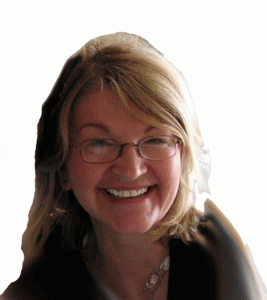 Julie W. Munro
Julie W. Munro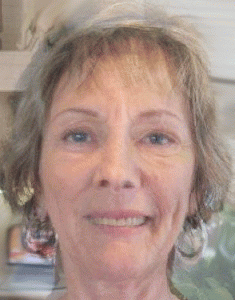 Caroline Bodanis
Caroline Bodanis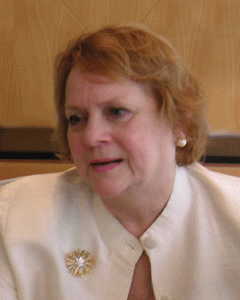 Sandra J. Millar
Sandra J. Millar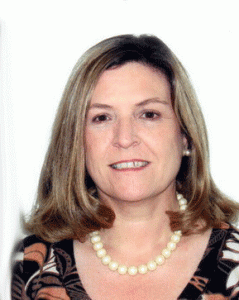 Janet M. Geddes
Janet M. Geddes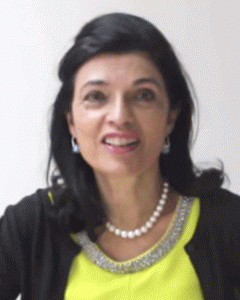 Dr. Donna Robinson
Dr. Donna Robinson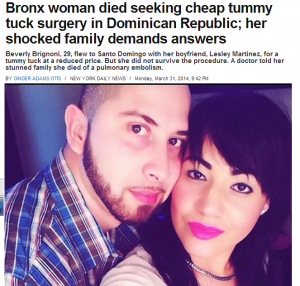 As many medical tourists start planning in January for medical travel later in the year, MTQUA cautions them to take great care when considering medical or surgical procedures in Thailand, South Korea, India and especially in Mexico, where deaths from weight loss and plastic surgery in certain clinics in the border towns of Tijuana and Mexicali have been widely reported in the American media.
As many medical tourists start planning in January for medical travel later in the year, MTQUA cautions them to take great care when considering medical or surgical procedures in Thailand, South Korea, India and especially in Mexico, where deaths from weight loss and plastic surgery in certain clinics in the border towns of Tijuana and Mexicali have been widely reported in the American media.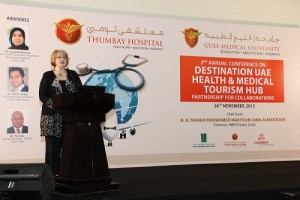 Dubai Healthcare Authority, as a recent entrant to the industry, has the opportunity to create a support structure that is more patient-focused, she said. Its new complications insurance product is a good example of government commitment to better outcomes and care for medical tourists.
Dubai Healthcare Authority, as a recent entrant to the industry, has the opportunity to create a support structure that is more patient-focused, she said. Its new complications insurance product is a good example of government commitment to better outcomes and care for medical tourists.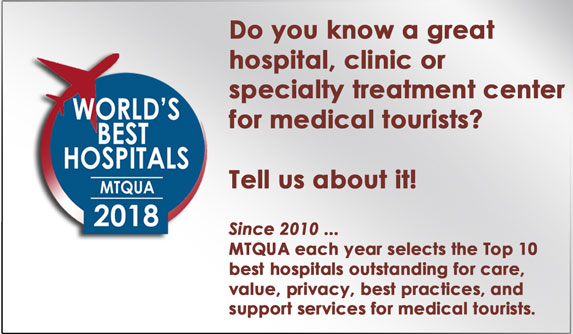 >
>